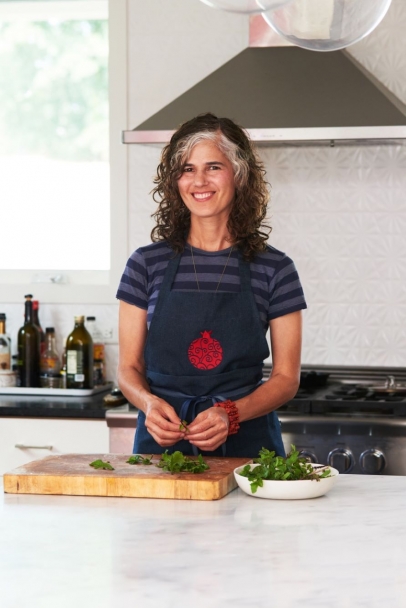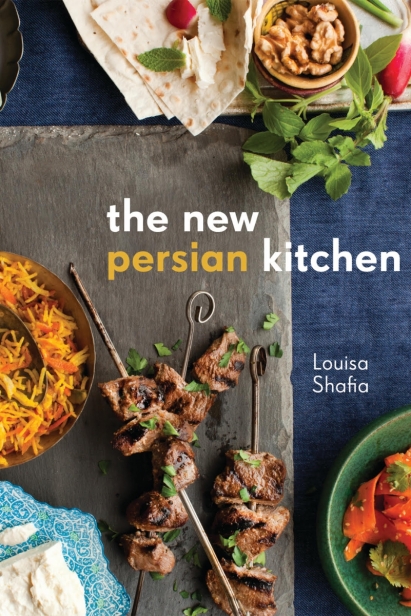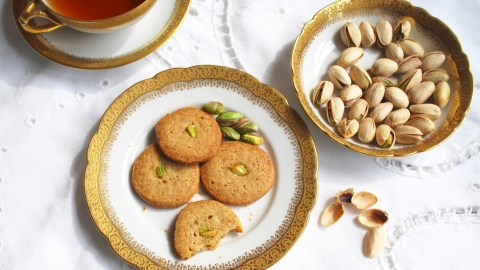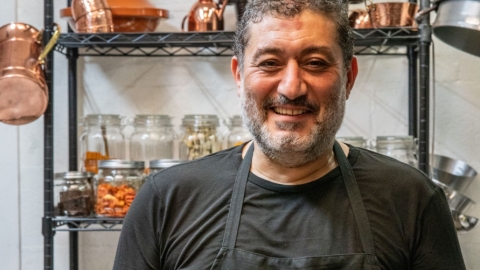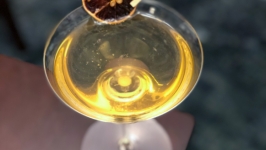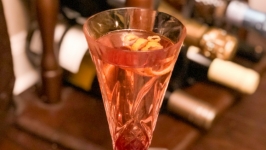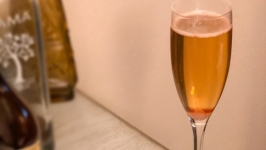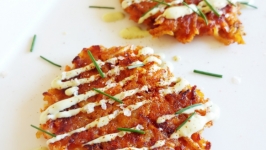The Flavors of Iran with Louisa Shafia
The sun climbs ever higher in the sky, gradually welcoming a 55-degree day not long after the new year. It hardly seems like January; I ponder this while I joyfully pop yet another chickpea flour and rose water sweet called Nan-e Nokhodchi into my mouth. I take a sip of the orange rind tea placed to my right and drink in not only its rejuvenating flavor, but every detail of the upcoming Persian New Year, eloquently relayed to me by chef, writer, and cookbook author Louisa Shafia.
Louisa’s passion for the food and culture of Iran began with her father, who is from the country, although she was born and raised in Philadelphia herself. This obsession has fueled her twenty-year professional cooking career as well as her ventures as a culinary liaison for The Tennessee Immigrant & Refugee Rights Coalition, and owner of Feast by Louisa, which sells tantalizing Persian spices, cookies, rice bonnets, and aprons.
With the country’s largest Kurdish population, Nashville grants Louisa access to an abundance of shops with Persian ingredients. “When I am feeling down or need some creative inspiration, I’ll go to Nolensville Pike,” she says as she takes a swig of tea. “I’ll go to different stores and pick up some new spices or if there’s a jar of something that looks intriguing, I’ll bring it home and see what I can do with it… [I go there] to dream.” Through that lens and with inspiring items in hand, Louisa cooks vegetable centric, seasonal food, creates Persian pop-ups, and teaches cooking classes.
Currently, her inspiration is turning to the Persian New year. Here in America, we’re used to celebrating the new year with the resetting of the calendar, vowing to personally turn over a new leaf. And we, along with many others, have been doing so for a cool 2,066 years. Meanwhile in Iran, the ancient new year holiday called Nowruz (pronounced no-rooz) has been blessing families for over 3,000.
Nowruz takes place on the spring equinox--March 21st for 2021--and is the largest holiday of the year, with celebrations spanning the course of 13 days. It’s a pure exultation of rebirth and the bond between humans and nature. In that spirit, cleaning your house, purging unused items, mending fights and differences, and giving food and gifts are traditional activities.
Speaking of gifts, more cookies appear in front of me. I make my way over to the chocolate chip cookies made with dried pomegranate, pomegranate molasses, and ground cardamom. I comment how fresh it tastes. “Oh, I grind my own cardamom,” she says. “I am totally spoiled. I love the texture; it’s not perfect and it’s so fragrant.” Cardamom is to Iranians like cinnamon is to bakers in America – it’s in virtually every dessert. (It’s the same for rose water instead of vanilla extract.) Apparently, we should all start spoiling ourselves.
As with most holidays, a lot of Nowruz revolves around food. Persian families set up their haft seen, a table with 7 ceremonial foods and objects that conjure abundance, health, and happiness for the new year, as seven is a lucky number, and leave it up from the start of Nowruz until the end of all 13 days of celebration.
“It is all about renewal. You sprout lentils and wheat leading up to it so when you go to have your beautiful Nowruz dinner, there’s all these green sprouts. And there’s herbs and greens and shoots in the traditional Nowruz menu. There’s noodle soup that’s full of greens and long noodles and you make rice with herbs and you make fish…. It’s really fun.”
On the 13th and final day of Nowruz, it’s customary to take the family on a picnic, where you feast on kabobs and discard the sprouts in running water to symbolize an “out with the old” mentality and a “letting go” of the misfortunes of the year. We can certainly all relate to that.
Follow Louisa on Instagram @louisashafia and @feastbylouisa


